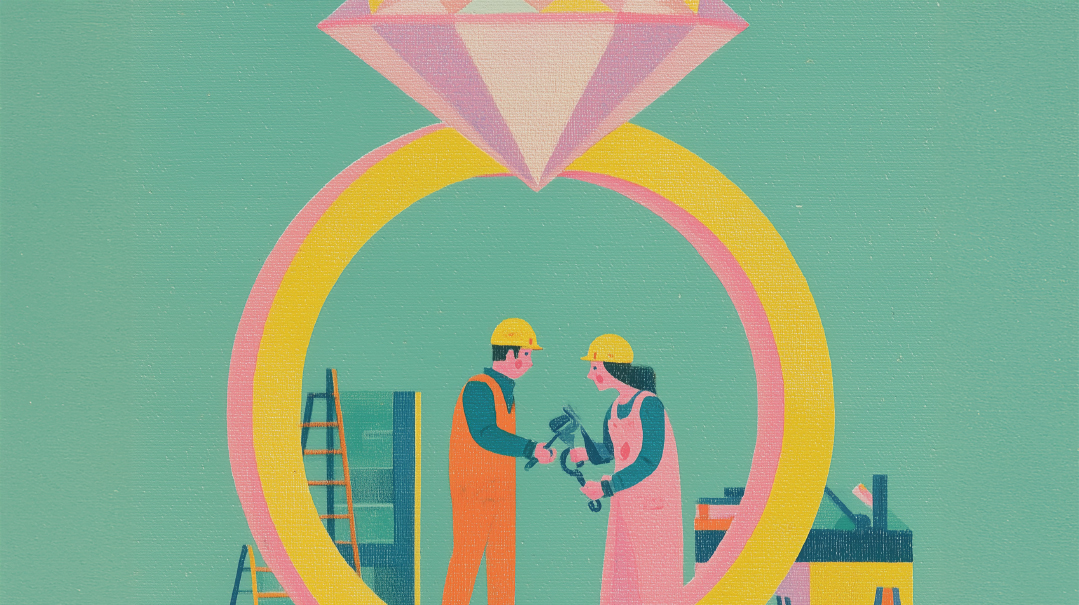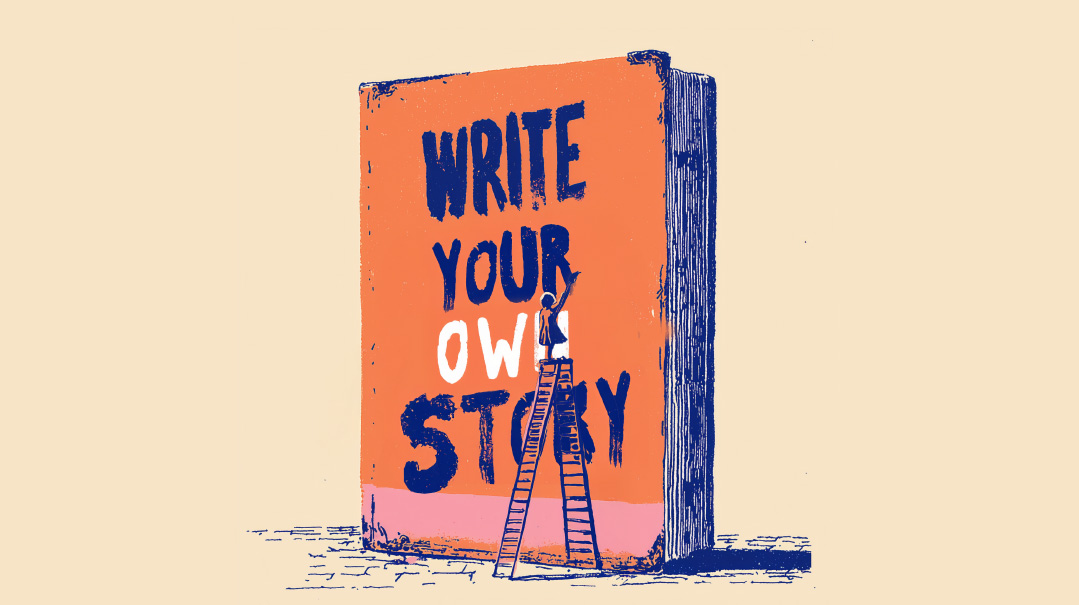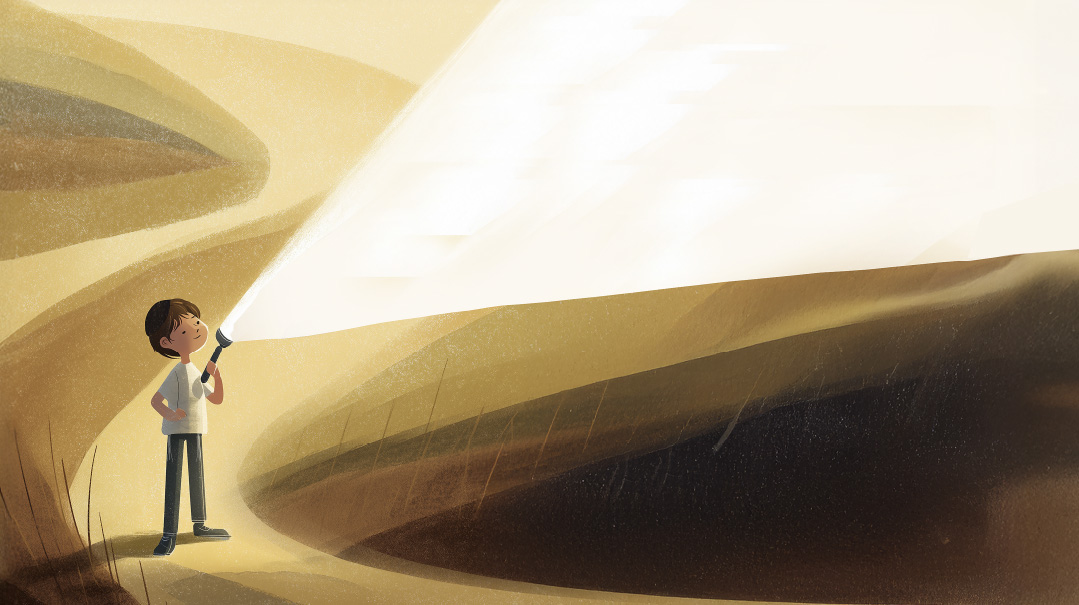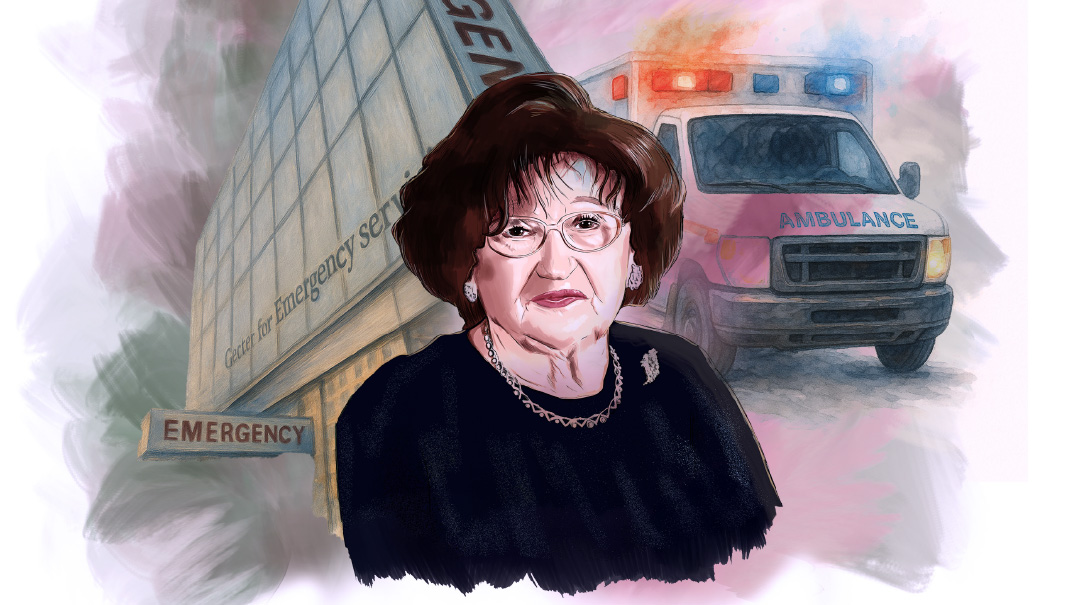Guilt, Grief — and Relief

Three women share their stories of losing a loved one after a prolonged period of pain, and grappling with the feeling of relief that accompanied their passing
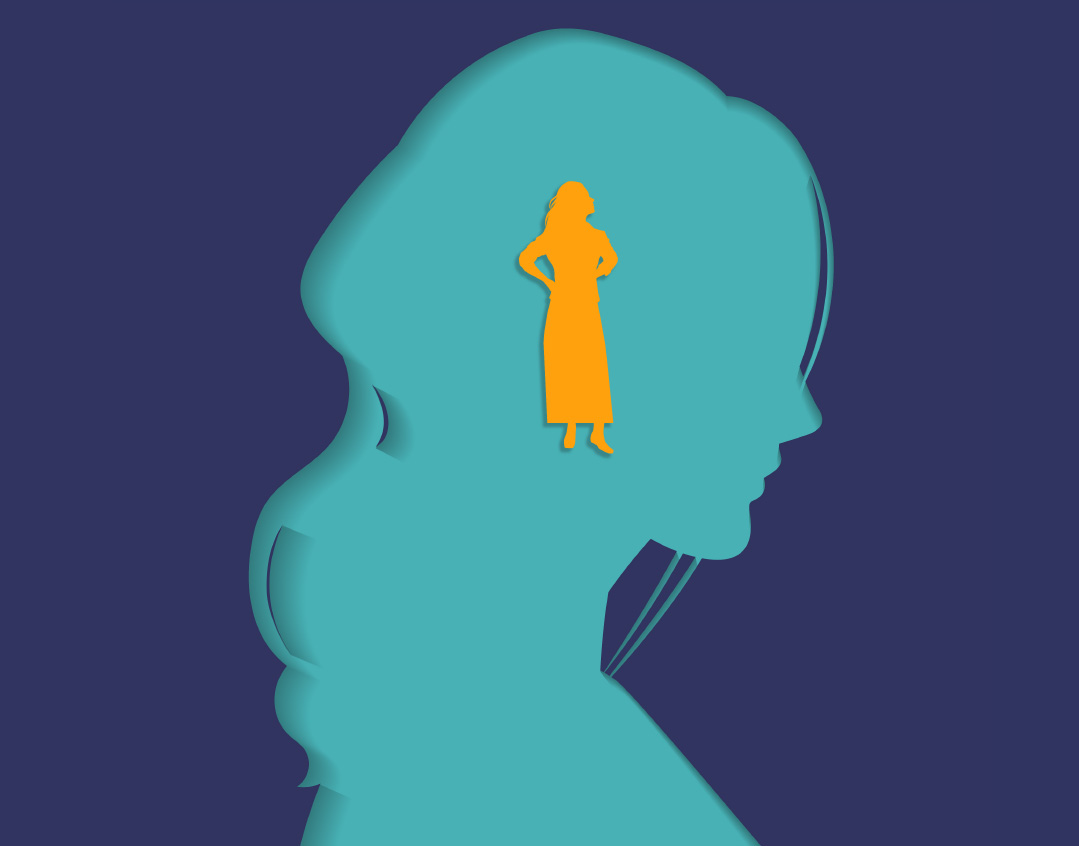
Naomi’s Story
I
was in my mid-thirties, my oldest 12, and my youngest only 11 months when our little boy was born at 23 weeks, after a pregnancy that had mostly been spent on bed rest.
I was already in the hospital due to a problem that had arisen, when labor set in. I was terrified. I begged the doctors and midwives to do whatever they could to halt the contractions, but they refused to intervene, as it was against protocol. When the baby was born they discovered a clot inside me that was so large, it weighed more than the baby himself, and had posed severe danger to my health.
That miracle would turn out to be one of the many we would experience throughout the month our baby lived.
In the beginning, we were hopeful, believing our son had a chance. Yet as the days progressed, so did the complications and the dire prognoses. Every day brought with it a brand-new fight. I was exhausted from the pregnancy, from the birth — I’d had six blood transfusions — not to mention my five kids back home who needed my care, including my not-yet one-year-old.
Every now and then at the NICU, there would be an emergency; all the lights and alarms would flash, and everyone but the nurses and doctors would be ordered to leave the room. As there were several babies to a room, no one waiting outside had any idea whose baby had caused the commotion, or if the emergency spelled life or death. I remember one such incident. It was at two a.m. It turned out it wasn’t my son, but all I felt was, I can’t do this anymore, I can’t fight any longer. I felt the last bit of energy seep out of me.
My son was still fighting, yet I couldn’t anymore.
The community rallied around my family back home. They were a streak of light in the darkness, sending meals, grocery deliveries, and doing carpool, not just for the kids, but for me, taking me to and from the hospital, so I could have some time at home with my frightened and confused kids before running back to be with the baby. Again and again and again.
I sat for hours at our baby’s bedside, never sure what he needed without the help of the staff. Although I’d decided not to breastfeed him (as he was too close in age to my baby at home, and it would have been too much) it turned out I had no choice, as his gut was too immature to tolerate any kind of formula. I became painfully engorged as my baby could only handle tiny quantities of milk. And while he couldn’t utter a sound, all I had to do was gaze at his contorted face, see the wrinkles on his forehead, to know he was in tremendous pain. My pain, his pain… it was all too much.
The day our baby passed away was Erev Tishah B’Av. I’d played out the moment in my head multiple times and knew that one thing I didn’t want to do was allow our grief to contaminate the hospital atmosphere and affect the other families, like we’d seen happen with a baby next to us who’d passed away. We kept a low profile while we attended to the halachos and got the support we needed. The details of what took place that day are hazy in my memory; I don’t like to revisit the specific details of what occurred. The thing that was clear to me was that his time was up.
Witnessing my child suffer and then losing him was terribly painful. While he’d been alive, I’d been pumping and freezing my milk, as he only needed very small amounts, and after he passed away, I donated my extra milk to a milk bank. But I felt that the milk I continued to pump after his death until the medication I took to stop milk production kicked in was too tainted by my sorrow, and I didn’t want any babies to imbibe that, so I threw out the whole lot.
Yet knowing he wasn’t in pain anymore — knowing he was in a better place — was also a huge relief for me, though I went through periods when I felt terribly guilty about that. I’d been on bedrest for the months leading up to the birth, so I never got a chance to toilet-train my almost three-year-old, and I was changing three sets of diapers every day. Now I could go back to my family and be there for them, recoup my energy, sleep for the first time in months, and take reassurance in the fact that I was no longer responsible for a sick baby. A massive cloud that had been hanging over us had been removed.
People made all sorts of comments, like it’s better he passed away this way — I would’ve had to deal with a special needs child. Or, better that he wasn’t a grown father of 40. Instead of being hurt, I tried to maintain perspective and appreciate the little winks from G-d along the way, like the many lives we touched throughout our hospital stay, and the people who told us that due to our story they experience life in a different way.
Because our son never breathed on his own, we didn’t have to sit shivah or have a levayah, which at the time felt so unfair to me, like I was being denied the opportunity to openly grieve. Then it occurred to me that because I had a daughter over bas mitzvah, she would’ve had to participate as well, which would’ve been a huge strain on her, given all she’d been through. That was yet another wink from Hashem. It also gave me freedom to grieve in any way I wanted, sitting on a low chair or curled up on the couch, and there was something special about that.
I got guidance from Rebbetzin Spetner over email, who supported me with my struggle to understand the place for intense grief while simultaneously believing that everything Hashem does is good. There was relief in knowing that it was okay to cry and feel bad. That was another angle to my relief. I held on to a story about a chassidishe rebbe who told his chassid who’d lost a child, There’s no supposed to. Your child wasn’t supposed to live an extra day; your child was never supposed to reach this milestone or that birthday. There was never supposed to be anything more.
I knew my child wasn’t supposed to live, wasn’t supposed to grow up, wasn’t ever supposed to smile. He had his tikkun to fulfill, and he fulfilled it.
I drew upon recollections of the beautiful moments we had amid the painful ones. Like the times my husband would sit with his chavrusa next to our son’s incubator, willing our baby to absorb all that Torah they learned. Singing Abie Rotenberg’s “Ride the Train” to him, which somehow felt like the right song, the one I’d connected with throughout the ordeal. Having my friend, a music therapist, over for visits at the hospital, and my son’s saturation levels would rise while she was there doing her thing.
When I came home from the hospital, we had to break the news to our kids. I told them that our little boy is now next to Hashem because that’s where children go. “And if you need anything from Him,” I said to them, “remember your brother who is sitting next to the Kisei Hakavod.”
I learned that pain and grief are hard, but not bad.
I learned how precious life is, every day, every moment, the kids we have, the friends we have. Community. The support system I had in place was unbelievable and went on for weeks afterward. We felt so looked after. I saw other mothers going downstairs to the hospital shops to buy diapers, but we didn’t need to do a thing; we had people doing everything for us.
I had a chesed girl over very shortly after we buried our son, and when she asked me how many kids we had, it was a shock to answer, “I had six, and now I have five.” Today, eight years later, the pain has waned, but it still shocks me each time I get that question. It’s hard to say, “I have three girls and two boys” — especially when I talk to someone who has three boys.
Other challenges have come up over time, and I sometimes do wonder how I would have managed with a child with severe special needs, and that often brings another wave of relief.
On the day of our baby’s shloshim, which, in a chilling contrast, coincided with our older baby’s first birthday, my husband and I took our older baby to get her first pair of shoes. All I felt was the appreciation that I had another baby to come home to, to hold, to cuddle.
And that appreciation has never ceased.
Each Friday night I light a candle for our baby boy, and think about the crossing over of the different experiences. And I shed tears for the loss I experienced.
Yet I cry for the blessings, too.
I wonder what he “looks like,” and I ask Hashem to “give him a kiss for me.”
Gila’s Story
F
ive years ago, my mother-in-law was suddenly diagnosed with a rare brain cancer. I was 29 and married with four kids all very close in age. The doctors had no idea how long we had. Ultimately, she held on for 13 months, but we were so busy that year looking after her, we didn’t have a chance to wrap our heads around the shocking news.
My mother-in-law was a beloved teacher and mentor to many, and was involved in multiple projects when she received her diagnosis. She deteriorated immediately, becoming like someone with Alzheimer’s, losing her patience, memory, and grasp on reality, and had to be cared for like a baby.
We got her an aide, but Mom was afraid to be left alone with her, so someone in the family was always there. That usually meant me or my husband, because we lived in close proximity, or my sister-in-law and her husband, who were a half-hour drive away. My four other sets of siblings-in-law all lived in other states.
It was devastating to see someone who was the matriarch of the family, whom everyone admired and turned to for advice, undergo such a rapid transformation, and the role reversal was very challenging. My mother-in-law and I were close from the start, and she was the one I’d turned to for practical and emotional guidance throughout my nine years of marriage. She challenged every stereotype about mothers-in-law, was a mother-in-law a girl could only dream of having.
Until then.
My already hectic life at once became a stressful blur. I was juggling caring for my family, work, caring for my mother-in-law, oh, and I was in my first trimester and feeling it intensely. My mother-in-law slept during the day and was awake at night, so my husband or I would miss a night’s sleep on average twice a week looking after her. It stripped us of whatever physical and emotional energy we might have had.
Toward the end, the doctors said she had anywhere between two months and two years, and the unspoken thought was, No, how on earth will we manage like this for two more years? It had already been a year, and the strain on our family was acute. By then I’d given birth to our daughter, but instead of feeling post-birth joy like I’d had in the past, I felt sick with worry and anxiety, and at the tipping edge of overwhelm.
In the end, it was two weeks. She had an abrupt deterioration, and then it was over.
Grief is a funny thing, because you can feel five conflicting emotions all at once. Knowing that someone is terminally ill makes you live on edge, expecting the worst anytime. That fear of “it” happening was finally over. I couldn’t help the huge part of me that felt relieved.
There was the massive easing up of our schedules, and the increase in our energy levels now that we no longer had the daily challenge of looking after our difficult, irrational mother/mother-in-law, who behaved like a toddler sans the spunk and sparkle, and the relief that it was over in two weeks and not another two years.
There was anger, too. Anger for how difficult my mother-in-law had become the year she was sick, anger that she took my attention away from my own family.
Then, inevitably, there was the guilt. The guilt for being so self-absorbed that we could feel anger and relief mixed into our grief.
But underneath it all, I was sad. We thought we had a bit longer with her, and then, boom, two weeks, and it was over.
I miss my mother-in-law so much, and wish I could go back in time to the years she was healthy, and freeze those moments in my mind. To heal, I try to focus on them and on my very blessed, very hectic life.
Rosie’s Story
G
rowing up as one of two siblings in a tiny family — my mother was an only child and my father one of three, and both his siblings lived overseas — I longed for the day I’d get married and expand my pool of people I could now call family.
When I met the man who would become my husband, I was disappointed to discover that he, too, only had two siblings, one of whom was 17 years his senior. The other was a mere two years younger than he was, and already married and living across the state. At least we had that, I thought.
Little did I know that actually, no, we wouldn’t have that either.
I was only a year married and expecting my first when we moved to the same town as my younger brother-in-law and his wife and kids so my husband could complete his medical residency. For the first time ever, I would have family nearby.
But my excitement quickly unraveled when they didn’t call when we moved in, didn’t send anything, and made zero overtures to help us feel welcome. They didn’t come to our simchahs and weren’t interested in a family Chanukah party or Purim seudah.
I’d taken a job subbing in a local kindergarten, and one afternoon I discovered that I’d temporarily be teaching my nephew. But when I called my sister-in-law to eagerly share what I thought was exciting news, her husband took the call and made it certain that the news was of no interest to him.
From that point on, we dropped all contact. Correction: We didn’t. They did. For Purim I lovingly arranged for a mishloach manos to be delivered to their door, but there was no response, no clue from them that it had even been received.
The siblings had never had a disagreement, there was never any active arguing or fighting, so my husband and I had no idea why we were being treated this way or what we’d done to deserve it. We felt confusion and deep hurt.
When my husband completed his residency, it was with a mixture of relief and heavy hearts that we packed up our little family and found ourselves a new home in another city. At least now we could pretend our lack of contact was due to geography.
One day, out of the blue, this brother-in-law called. Frightened and dazed by his sudden contact, I cautiously took the call. He told me he’d just been diagnosed with stage 4 cancer, and the prognosis wasn’t good. He wanted to say he was sorry for his coldness to us, to make amends somewhat. He didn’t really offer anything beyond that, but at least he’d decided to call us, talk to us.
The burgeoning hope that we might have some connection now was quickly tainted by that familiar pain when he then asked us outright to stay away, to avoid visiting, to please understand. In another brief phone call, a definite improvement to our prior (non)relationship, I explained how painful we found his exclusion. Yet all I got in return was, “Please, just don’t be angry. I can’t have anyone angry with me right now” — which I took as his way of saying he couldn’t help it and was doing his best under the circumstances.
I was still hopeful there would be some sort of reconciliation. I also felt an achrayus as a sister-in-law to help him get better. Of course I davened, but I also started organizing hafrashas challah events and similar public gatherings for his zechus. There was this odd dissonance in which publicly I was this caring sister-in-law, but there was the complex backstory of estrangement that no one in the world besides us knew about. I felt like a fraud.
When he did pass away, one of my first feelings was, with him gone, maybe we can be a family now and have a relationship with his wife and children. And boy, did I feel bad about that. These children were orphans, and here I was thinking about myself? What kind of monster was I? At the shivah I tried to maintain a socially appropriate level of sorrow while I listened to people share their memories of him. I’d only ever had two positive interactions with him, and found myself sharing those two stories over and over, as it was all I had to share.
It was during shivah when I found out, for the very first time, about the traumatic events in his past that he believed his parents had enabled. Perhaps that was why he wanted no contact with us? He’d wanted to start afresh, and we were ghosts from his past?
I didn’t really grieve the loss of him — I couldn’t, I hadn’t had him to lose — but I did grieve what could’ve been, that maybe somewhere down the road we could’ve started over, had a relationship. I grieved that I never had the family I dreamed of. I grieved that we never got to fully understand; I grieved that we never got to have a real heart-to-heart with my brother-in-law to work it all though. And within it all was the sense of relief — that now I could try and reach out to my sister-in-law — but then inevitably I’d feel like a horrible human being for feeling that way.
It took many years of internal growth to realize that people are complex. My brother-in-law was one example. He had his life, his own hopes, aspirations, dreams, and qualities, but for whatever reason, I’d only ever come to see the broken side of him.
Today, when I clash with someone — a neighbor, a friend, someone I’m working on a project with — sometimes I’ll step back and say, “Wait, this person is a whole person.” A difficult person is still a person — and I try to remember to not limit them in my mind, to not define them by whatever challenge is going on between us.
Now I do have a relationship with my widowed sister-in-law and her kids; my kids know their cousins, with all their complexities. I had this idealized vision of what family could be, yet it’s still complicated sometimes — but at least we’re no longer estranged and I’m happy for that. Every now and again I’ll get a flare-up of the emotions — when there is any mild disagreement in the family — but the intensity is gone, and for that I’m glad, too.
Because of the small family that we are, in an uncanny way I often find myself the holder of my brother-in-law’s memory, and often I will need to draw upon a crafted version of him in my mind when he comes up among my nieces and nephews. I’m mindful that he was their father, and now he’s gone, and I must respect his memory, I’d never want his children to know how distant we were from him, and that it was his doing.
Feelings aren’t linear, grief isn’t linear; I’ve been angry a lot of the time, and have vacillated between denial and the messy mix of relief and shame. On repeat. But I’ve also learned that it’s okay to have complex emotions, and that on the whole we do ourselves a better service when we drop expectations about the emotions we’re supposed to feel surrounding big life events.
Miriam Bloch, MBACP, is a psychotherapist and writer based in London, UK.
A Paradoxical Mix
The hallmark of grief is “normal pain.” We typically view pain as an indication of something that needs to be fixed or remedied. For those who have suffered the loss of a loved one, the anguish and distress is not only typically expected, but essential to achieving consolation.
Infrequently, there are losses that evoke a paradoxical mix of pain and relief. The death of a loved one naturally induces an aching for the now-absent individual that can coexist with an awareness of the relief of personal hardships as well as the suffering of either the deceased or his/her family and friends.
From my close to thirty years’ experience with grief and trauma, I can identify four situations during which these paradoxical reactions occur.
- An elderly or significantly compromised individual who may be comatose or severely demented to the point that there’s no apparent recognition of one’s surroundings or connections. Many family members of such individuals feel they had already mourned their loved one even before the biological death. While the demise of this person facilitates an opportunity to remember and even painfully recall times when he or she was capable of loving and inspiring, there is relief derived from the end of a life seemingly devoid of any interaction or pleasure.
- Family and friends of those afflicted with painful ailments causing much suffering and from which, medically, there is no known cure or anticipated recovery, can experience a sigh of relief when death finally occurs. Knowing that the suffering is over and that the mourners can now revisit the years during which this individual was vibrant and robust is sometimes welcomed and appreciated. This relief is also experienced in conjunction with the sadness of their absence.
- Infants born with severe medical complications whose life portends lifelong institutional care together with marked cognitive deficits and limited functioning. While parents are prepared to arrange and underwrite such provisions, the death of that child can spare the parents much effort and struggle for a child who will likely never respond or connect to them. The loss of such an infant still weighs heavily, especially on the mother who had a visceral connection with this child during pregnancy. Such births also create a shattering loss of dreams and expectations for both parents and even grandparents. However, that anguish is paired with relief as well.
- Perhaps the most intensely ambivalent loss is that of a rebellious teen, periodically abusive spouse, an emotionally estranged relative, or other comparably mixed relationships. Oftentimes, much effort is expended to repair these relationships and that alone can engender a unique attachment and connection. The death, however, also spares the loved ones much pain, frustration, and worry. The grief attendant to such relationships is often difficult and confusing and the mourners may need further assistance for much of the “unfinished business” and mixed emotions that may subsequently prey on their minds and hearts. One piercing comment that haunts me till today was from parents who said of their recently deceased adolescent, “At least now when the phone rings, we know it is not the police.”
The key to such concurring sadness and relief is to understand how normal and understandable such responses are and try to mitigate the guilt one may feel for such emotions. Relief over the death of a loved one in no way detracts from the love and devotion that existed during the lifetime of this person and persists through the mourning period and its aftermath. Faith and the unswerving belief in the sometimes incomprehensible perfection of our world doesn’t make us devoid of normal human emotions and reactions.
—Dr. Norman N. Blumenthal
Director of Trauma Services
Ohel Zachter Family National Trauma Center
Ohel Children’s Home and Family Services
Adjunct Professor, Rabbi Isaac Elchanan Theological Seminary and Ferkauf Graduate School of Psychology, Yeshiva University
(Originally featured in Family First, Issue 830)
Oops! We could not locate your form.


